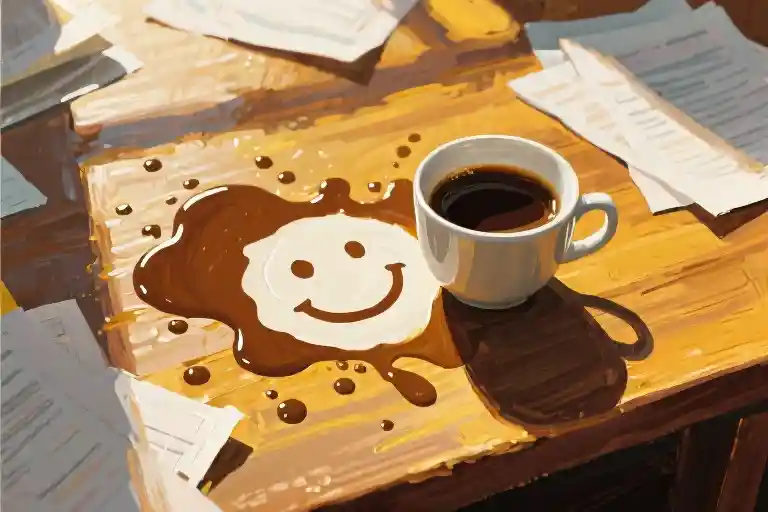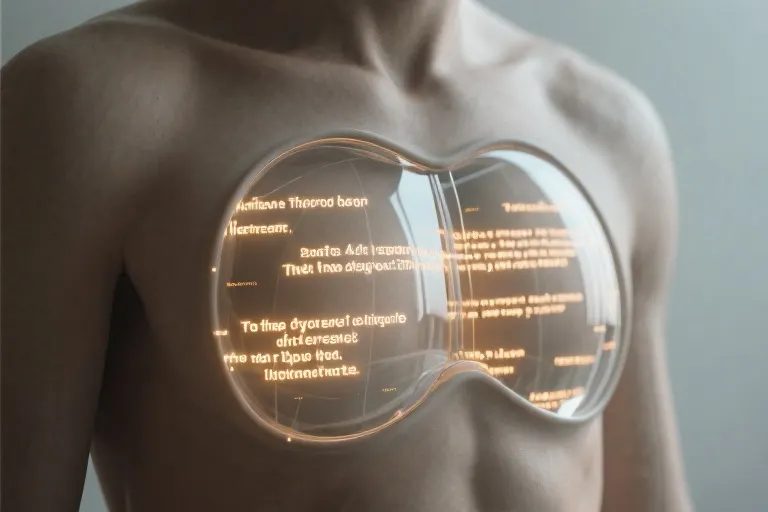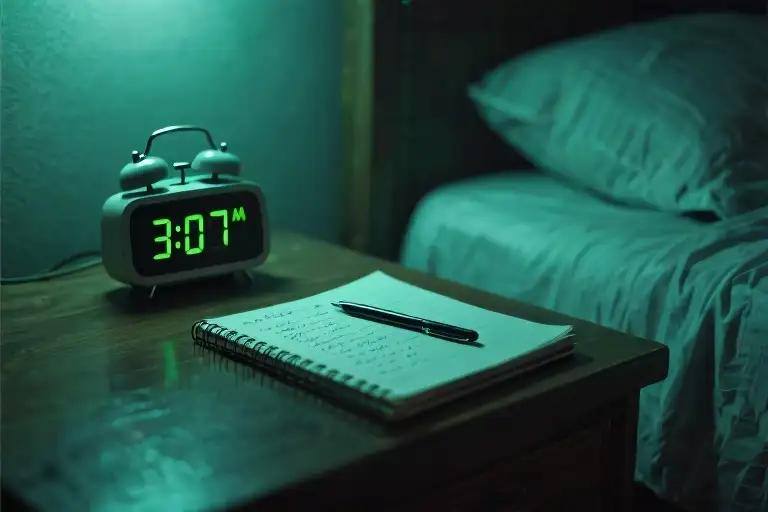The vending machine stares back at you with its glowing buttons. You press what you swear was the coffee option, but instead of that comforting brown liquid, out comes a steaming cup of tomato soup. Your brain short-circuits for a second – this wasn’t the plan. Across town, someone else sits frozen in a job interview, their carefully prepared answers evaporating as their mind serves up nothing but static. These aren’t life-altering mistakes, just the everyday kind that leave you cringing at your own reflection later.
What if these minor disasters aren’t proof of your inadequacy, but something far more interesting? That spilled soup and mental blankness might be telling you three unexpected truths: that you’re gloriously imperfect, surprisingly intelligent, and secretly entertaining. The very errors we try to erase could be the most human things about us.
Consider the bubble tea catastrophe – an incident involving excessive straw force, a plastic lid’s structural failure, and an impressive liquid trajectory covering three innocent bystanders. In the moment, it feels like cosmic proof of your clumsiness. But zoom out, and that sticky disaster becomes a personality feature rather than a flaw. The people who witnessed it? They’ll remember that story longer than they’d remember a perfectly executed straw insertion.
Our brains have a nasty habit of treating mistakes like moral failures rather than neurological necessities. Every misstep gets categorized as evidence of some fundamental brokenness, when really it’s just your biological learning software doing its job. That interview blankness isn’t your brain betraying you – it’s your brain prioritizing threat detection over recall, an ancient survival mechanism poorly adapted to modern conference rooms.
The coffee machine incident reveals something beautiful about human cognition. Your brain didn’t fail when it chose tomato soup – it succeeded spectacularly at pattern recognition. You saw a button, associated it with warmth and comfort, and executed the action. The fact that the outcome didn’t match your intention isn’t failure, it’s data. Your neural networks just collected valuable information about vending machine interface design and your own distracted state.
These small disasters serve as social glue too. That interview where you accidentally called the CEO by the wrong name? That’s future cocktail party material. People don’t connect over tales of flawless performances – they bond over shared vulnerability. Your most embarrassing moments often become your most requested stories, the ones that make people lean in and say ‘Oh my god, that happened to me too.’
Perhaps we’ve been measuring ourselves against the wrong standard. Instead of grading our lives like school papers – deducting points for every red ink error – we might consider an alternative scoring system where mistakes earn extra credit for entertainment value, learning potential, and humanity points. The real failure isn’t spilling the drink; it’s missing the chance to laugh about it afterward.
The Three Hidden Gifts of Getting It Wrong
We’ve all had those moments where reality diverges sharply from intention. You reach for confidence but your mind serves up mental static instead. You aim for professionalism but your hands stage a rebellion, sending your coffee cup into freefall during an important meeting. These aren’t catastrophes – just the universe’s way of reminding us we’re running human software, not some flawless AI program.
Imperfection Is the Operating System
That time I turned a bubble tea shop into a crime scene says everything about our first gift. When my overzealous straw puncture sent tapioca pearls flying like shrapnel across the table, I didn’t discover hidden talents – I discovered hidden stains on my new shirt. But here’s what that mess truly revealed: functional humans aren’t error-free, they’re error-correcting.
Neuroscience shows our brains actually learn more from mistakes than successes. The anterior cingulate cortex lights up like a pinball machine when we err, creating stronger neural pathways than perfect performance ever could. Your most embarrassing moments aren’t proof of inadequacy – they’re evidence of an adaptive learning system working exactly as designed.
The Intelligence of Not Knowing
We’ve conflated competence with never fumbling, which makes as much sense as expecting toddlers to sprint before they crawl. Consider how we treat children learning to walk – we celebrate their falls as progress. Yet somewhere between preschool and performance reviews, we decided stumbles became shameful rather than instructive.
That job interview where your thoughts scattered like marbles? It wasn’t incompetence – it was your brain mapping new territory. Cognitive scientists find novices make more mistakes because they’re attempting more complex processing than experts. Your awkward phase isn’t a deficiency; it’s the necessary chaos preceding mastery.
The Unexpected Charisma of Clumsiness
Social media feeds showcase curated perfection, but actual human chemistry works differently. Behavioral studies reveal people rate others as more likable after witnessing minor blunders – the ‘pratfall effect’ in action. Your spilled coffee moment didn’t make you look foolish; it made you look approachable.
Watch any memorable film character – their enduring appeal lies in flaws, not faultlessness. The heroes we remember aren’t paragons of grace but individuals who trip over their own feet while saving the day. Your personal blooper reel isn’t sabotaging your image; it’s making you three-dimensional in a world of carefully staged highlight clips.
What we dismiss as embarrassing evidence against ourselves often turns out to be the very things that make us relatable, interesting, and ultimately more connected. The moments you want to edit out of your life’s footage might actually be the scenes that make your story worth watching.
Why We Fear Mistakes
The vending machine spits out tomato soup instead of coffee. Your mind blanks during an important presentation. These moments share more than just temporary embarrassment—they reveal how deeply we’ve internalized the belief that mistakes equal failure. But this fear didn’t emerge in a vacuum. It’s the product of three intersecting forces that shape our relationship with errors.
The Manufactured Myth of Perfection
We’re living through history’s most documented era, surrounded by curated highlight reels masquerading as reality. Social media didn’t invent perfectionism, but it weaponized it. Consider this: the average person in 1950 might compare themselves to 50-100 acquaintances. Today, we unconsciously measure ourselves against thousands of polished online personas. This distortion creates what psychologists call ‘reference anxiety’—the persistent sense that everyone else has life figured out.
Industrialization planted the early seeds. Factory assembly lines rewarded precision and punished deviations. Schools adopted this model, training children that mistakes warrant red marks rather than curiosity. Now, workplace productivity tools track our every keystroke. We’ve built systems that mistake consistency for competence and variance for failure.
Four Cognitive Traps
Our brains amplify mistake anxiety through predictable thinking patterns:
- The Spotlight Effect: That presentation flub you can’t forget? Colleagues likely forgot it by lunch. We overestimate how much others notice our errors.
- Binary Thinking: ‘I messed up this report = I’m bad at my job.’ The mind loves false either/or equations that ignore nuance.
- Time-Travel Guilt: ‘I should have known better’ applies hindsight bias to past selves who lacked current knowledge.
- Permanence Fallacy: Neural pathways treat embarrassment like physical pain, making stumbles feel permanently damaging rather than temporary.
The Neuroscience of Oops
When we err, the brain activates its threat detection system. fMRI studies show mistakes trigger the anterior cingulate cortex—the same region that lights up during physical pain. This explains why forgetting someone’s name can feel viscerally awful. Our biology treats social errors like survival threats, a holdover from when tribal exclusion meant danger.
But here’s the hopeful twist: this reaction lasts just 0.25 seconds unless we feed it with rumination. The brain then activates its error-processing network, releasing neurotransmitters that enhance learning. Essentially, we’re wired to benefit from mistakes—if we don’t interrupt the process with self-flagellation.
This explains why musicians who embrace wrong notes improve faster than those who stop to criticize themselves. The difference lies not in talent, but in how their brains process slip-ups. One approach triggers growth cycles, the other stress cycles.
We’ve been sold a lie that competence means avoiding mistakes. In truth, it’s about building resilience when they inevitably occur. Those vending machine moments aren’t failures—they’re reminders that we’re operating as designed: imperfect, adaptable humans in a world that needs our particular brand of beautiful fallibility.
The Mistake Alchemist’s Toolkit
That moment when you realize your “epic fail” could actually be valuable raw material is when the real magic happens. Most of us instinctively shove our mistakes into mental drawers labeled “Never Think About This Again,” but what if we treated them like curious artifacts instead? Here’s how to transform those cringe-worthy moments into something unexpectedly useful.
The Three-Step Autopsy (Without the Gross Parts)
- Reconstruct the Timeline
Before your brain starts editing the memory like a nervous film director, write down exactly what happened in neutral language. Not “I bombed the presentation like an idiot,” but “At 2:15PM during the quarterly review, I skipped slide 12 because my hands were shaking.” This forensic approach reveals the actual pivot points where things diverged from Plan A. - Identify the Hidden Curriculum
Every mistake comes with invisible gift tags. Maybe your coffee-spilling incident taught you that ceramic mugs > paper cups during important meetings. Perhaps your PowerPoint disaster revealed that bullet points put audiences to sleep faster than melatonin. List every unintended lesson—even the absurd ones. - Design Your Anti-Mistake Vaccine
Now create one tiny preventative ritual for future you. If you blanked during interviews, maybe it’s doing vocal warmups in the parking lot. If you keep sending emails with missing attachments, perhaps it’s chanting “file, file, file” like a mantra before hitting send. The sillier the ritual, the more memorable.
Comedy Gold Mining
Your most embarrassing stories are actually unpolished stand-up material waiting to shine. Try this formula:
- Set the scene: “There I was, wearing my lucky interview socks…”
- Insert the twist: “…until I realized they were two different shades of black”
- Add physical comedy: “Cue me attempting to hide my feet under the chair like a penguin smuggling contraband”
- Punchline perspective: “Turns out, the CEO was colorblind. We bonded over mismatched shoes.”
Practice retelling your blunders with increasingly dramatic flair until you can deliver them with the same fondness people reserve for childhood mischief stories. The quicker you can laugh about it, the faster it stops haunting you.
The Bullet Journal of Blunders
Traditional journals focus on gratitude or productivity. Your mistake log has different priorities:
- Catalog by category: Social faux pas, technical errors, wrong assumptions
- Rate the cringe factor: 🌶️ (mild) to 🌶️🌶️🌶️🌶️🌶️ (still waking up in cold sweats)
- Track the afterlife: How long did the embarrassment actually last? Who remembers it besides you?
- Spot patterns: Do most mistakes happen before coffee? During full moons? When pretending to be someone you’re not?
Over time, this becomes less a record of failures and more a fascinating map of your personal growth fault lines. The entries that once made you wince will start reading like ancient history—amusing relics from a more naive version of yourself.
What we call mistakes are often just unexpected experiments in being human. The spilled drinks, the mispronounced names, the autocorrect disasters—they’re not proof of your inadequacy, but evidence that you’re out here trying things. And that’s infinitely more interesting than playing it safe in perfection’s sterile bubble.
The Wisdom in Your Coffee Machine Mishap
That moment when the vending machine spits out tomato soup instead of your much-needed coffee? It’s not just an inconvenience—it’s a tiny revelation. The same goes for when your mind blanks during an important presentation, or when you send an email with the wrong attachment. These minor disasters contain hidden gifts, if you’re willing to unpack them.
The Unexpected Upgrade
Think back to our coffee machine scenario. At first glance, it’s pure frustration—you wanted caffeine, got sodium instead. But flip the perspective: that wrong button press just installed a software update in your personal operating system. Mistakes function like patches in our human programming, each one fixing bugs we didn’t know existed. The soup incident? That’s patch 2.3.1, addressing “autopilot mode fails.”
This isn’t just philosophical fluff. Cognitive scientists have found that our brains process errors differently than successes. Where success gets filed away quietly, mistakes trigger heightened activity in the anterior cingulate cortex—essentially your brain’s “system alert” mechanism. It’s why you remember embarrassing moments from years ago but forget yesterday’s small wins.
Your Turn to Share
Now it’s your turn. That thing you did last week that made you cringe? The typo in the company-wide email? The time you waved enthusiastically at someone who wasn’t actually waving at you? I want to hear about it—not because misery loves company, but because shared stories transform shame into connection. Drop your “best” mistake in the comments, and let’s crowdsource some wisdom from what went wrong.
Here’s how to reframe yours:
- Describe what happened (“I called my boss ‘mom’ in the Zoom meeting”)
- Identify the patch note (“Fixed: work-life separation settings”)
- Share what it taught you (“Now I take 3 breaths before speaking when tired”)
The Last Drop
We began with a coffee machine’s betrayal, so let’s end there too. That machine didn’t malfunction—it performed exactly as programmed. The error wasn’t in its mechanics, but in our assumption that we could operate it perfectly while distracted. And isn’t that the ultimate lesson? Our mistakes don’t prove we’re broken; they reveal where we’ve been asking too much of ourselves.
So here’s to the soup where coffee should be, to the brain freezes during big moments, to all the ways we prove we’re gloriously human. As the Japanese proverb goes: “Fall seven times, stand up eight.” Or in our case: “Spill seven bubble teas, laugh about eight.”
Final thought: Your most embarrassing mistake today will be your most useful story tomorrow. What chapter are you writing?





